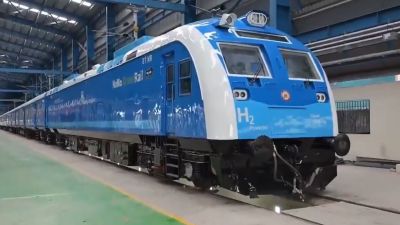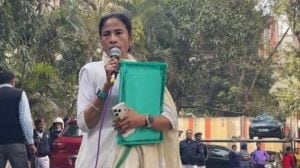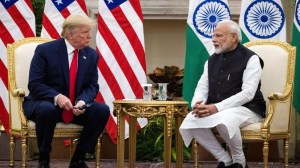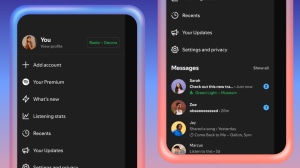Special session: As PM raises it, a look back at ‘cash for vote’ scam
The tale of Rs 1 cr waved in House, seven accused who were later all discharged, and money that made its way to PM Relief Fund
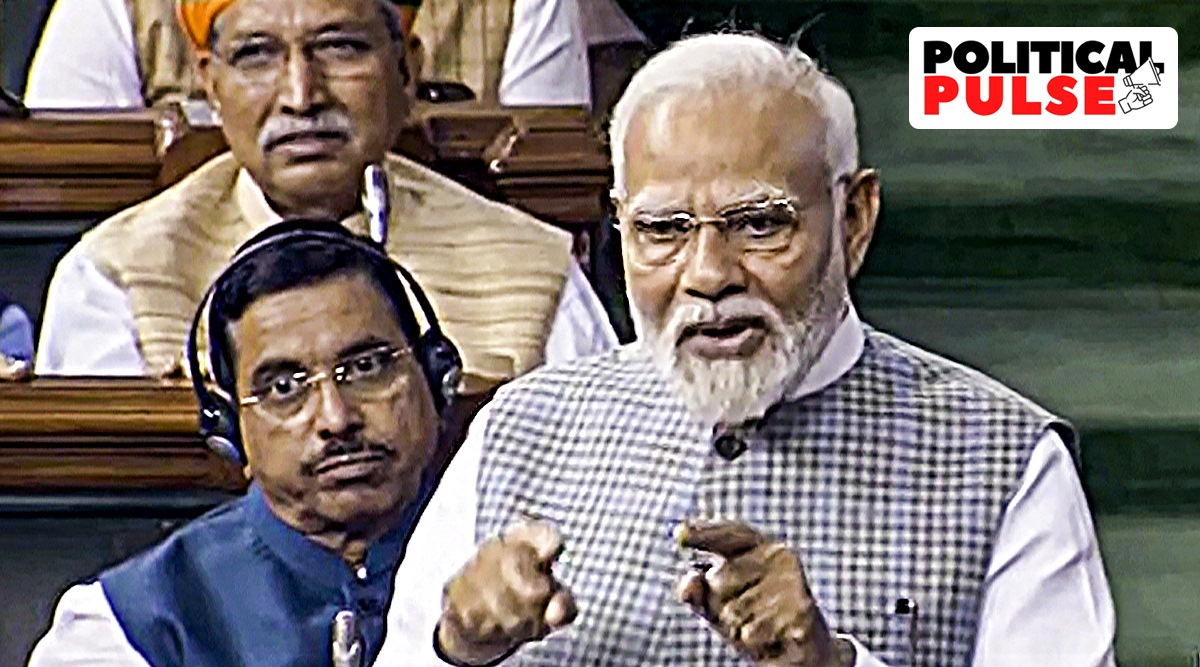 Prime Minister Narendra Modi speaks in the Lok Sabha during a special session of Parliament, in New Delhi, Monday, Sept. 18, 2023. (PTI Photo)
Prime Minister Narendra Modi speaks in the Lok Sabha during a special session of Parliament, in New Delhi, Monday, Sept. 18, 2023. (PTI Photo) Initiating the discussion in the Lok Sabha on “Parliamentary Journey of 75 years starting from Samvidhan Sabha — Achievements, Experiences, Memories and Learnings”, Prime Minister Narendra Modi talked about the high points of the House, lauding PMs who had preceded him such as Jawaharlal Nehru, Lal Bahadur Shastri, P V Narasimha Rao and Atal Bihari Vajpayee, remembering the contributions of B R Ambedkar, Sardar Vallabhbhai Patel, Chandra Shekhar and L K Advani, and talking about the liberation of Bangladesh under Indira Gandhi.
On the other end of House’s history, Modi talked about Emergency and the ‘cash-for-vote’ scam during the Manmohan Singh government.
What was the cash-for-vote scam
On July 22, 2008, the Congress-led UPA government faced its first confidence vote after the Left Front withdrew support to it over the Indo-US nuclear deal. The UPA had 226 members (153 of the Congress), and needed 272 to win the motion in a House of 543. The NDA had 170 MPs (including the BJP’s 129).
UPA managers reached out to Mulayam Singh Yadav’s Samajwadi Party, which had 39 MPs, to win the confidence motion. Mulayam said that former President A P J Abdul Kalam had told him that the Indo-US nuclear deal was good for the country, and so he had decided to support it. Further adding to the drama, the CPI(M) asked Somnath Chatterjee, its leader who had been appointed the Speaker, to step down and vote against the government. Chatterjee refused, and would be expelled a day after the trust vote.
After two days of debate, the UPA government won the motion with 275 votes, while 256 MPs voted against it. Ten MPs abstained. Both sides brought in MPs confined to sick beds or prison cells to boost numbers in the close contest.
What marred the debate was three BJP MPs – Ashok Argal, Faggan Singh Kulaste and Mahaveer Bhagora – bringing to the House bundles of cash which they produced and waved around, accusing the government of giving it to them in order to buy their support or abstention in the vote. The BJP demanded the resignation of Manmohan Singh over the allegations, and claimed to have video evidence of deals being made. The government denied the allegations, and Speaker Somnath Chatterjee asked the police to investigate the matter.
Around a fortnight later, the BJP offered “documentary evidence”, including transcripts of video recordings, to support its allegation that Argal, Kulaste and Bhagora had been bribed to vote in favour of the UPA government. The party claimed that an aide of its senior leader L K Advani, Sudheendra Kulkarni, had roped in SP Rajya Sabha MP Amar Singh to offer bribes to the three MPs to expose the Manmohan Singh government. It also claimed that Congress Rajya Sabha Ahmed Patel was involved.
It passed the proof to the investigatory committee set up by Parliament, headed by Congress MP V Kishore Chandra Deo.
In December 2008, the parliamentary committee reported it had found no evidence against Amar Singh and Ahmed Patel on the charge of offering bribes. The committee recommended further investigation into the role of three non-MPs, including Kulkarni, Amar Singh aide Sanjeev Saxena and a Sohail Hindustani.
Saxena was arrested in July 2011, followed by Hindustani. Police claimed to have sufficient evidence to prove that Saxena had delivered money to the three BJP MPs and alleged that he had misled them. Police also said that while they had interviewed Bhagora and Kulaste, who were no longer MPs, they could not question Argal as he was still in office, or Amar Singh as he was a Rajya Sabha MP.
In August 2011, police filed a chargesheet against Amar Singh, Saxena, Hindustani, Kulkarni, Kulaste and Bhagora.
In September 2011, Kulkarni was arrested on the charges of allegedly “master-minding” the operation. He claimed he was “a whistleblower” who intended to expose corruption, had approached the SP’s Amar Singh to offer bribes to BJP MPs, and then got a TV channel to film the alleged bribe-giving.
Amar Singh was arrested the same month for his alleged involvement in the scam.
On November 22, 2013, a Delhi court accepted the statements of Amar Singh, Kulaste, Argal and Bhagora that their actions had been as “whistleblowers”, and gave them a clean chit. It also cleared Kulkarni and Hindustani.
In May 2015, Saxena, the last of the seven originally accused in the case, was also discharged.
Faggan Singh Kulaste is currently Mandla MP and Union Minister of State, Steel and Rural Development. Ashok Argal failed to get Lok Sabha tickets in both 2014 and 2019 from the BJP. Mahaveer Bhagora died in 2021 of Covid.
Of the others, Amar Singh died in 2020, while Sudheendra Kulkarni has now turned a bitter critic of the Modi-led BJP.
As for the cash that had been waved around by the MPs in the House, in September 2015, a Delhi court ordered that the Rs 1 crore seized be deposited in the PM’s Relief Fund.
- 01
- 02
- 03
- 04
- 05



